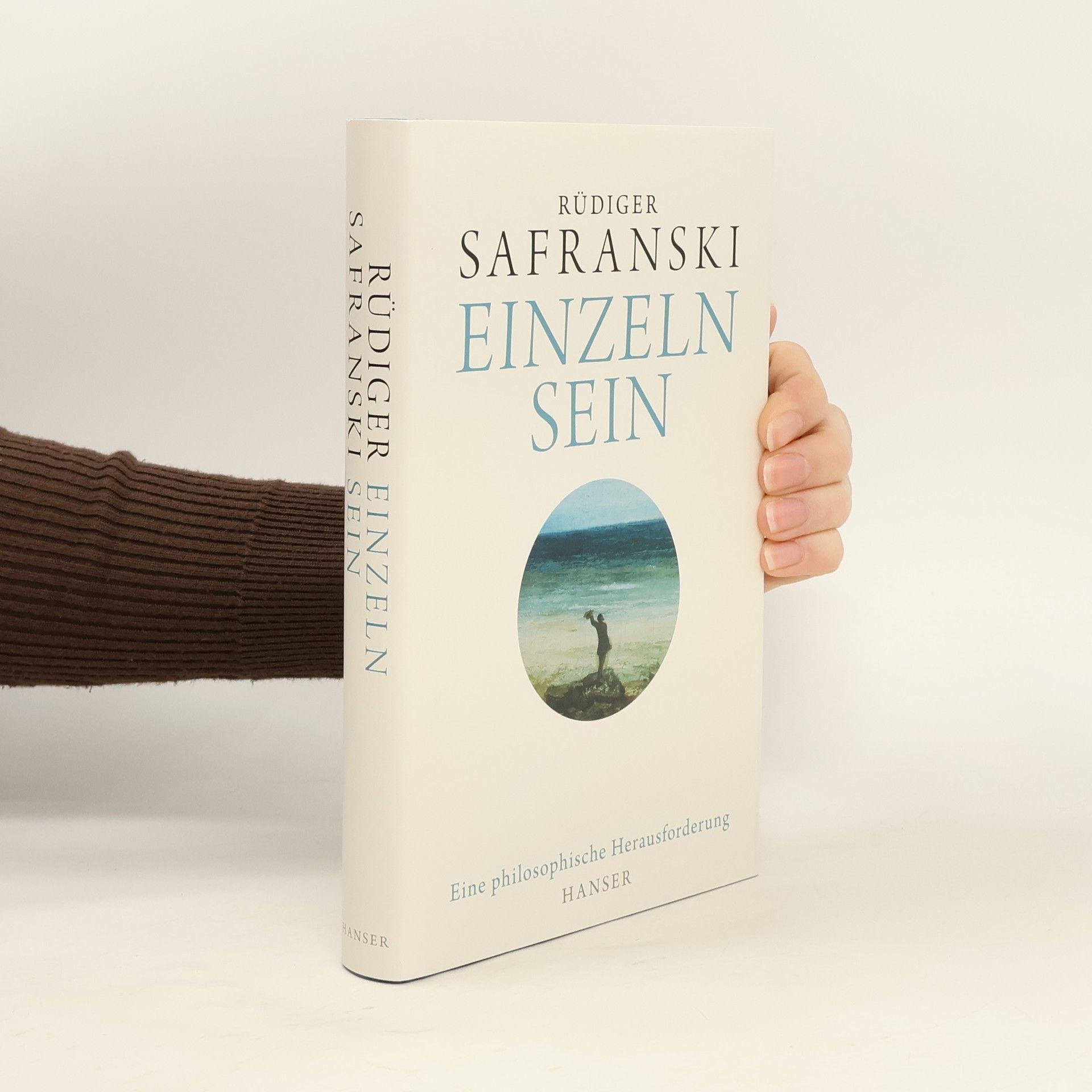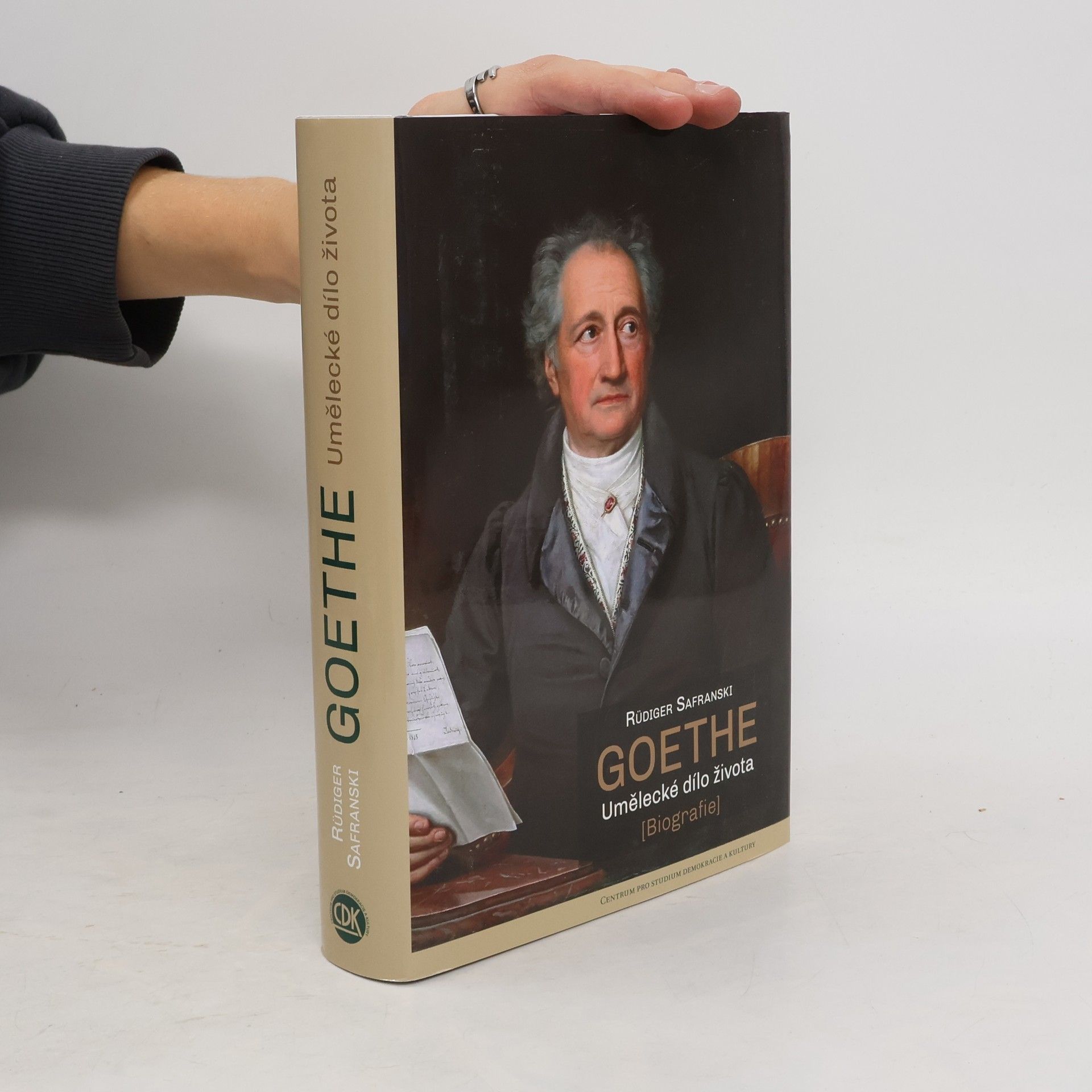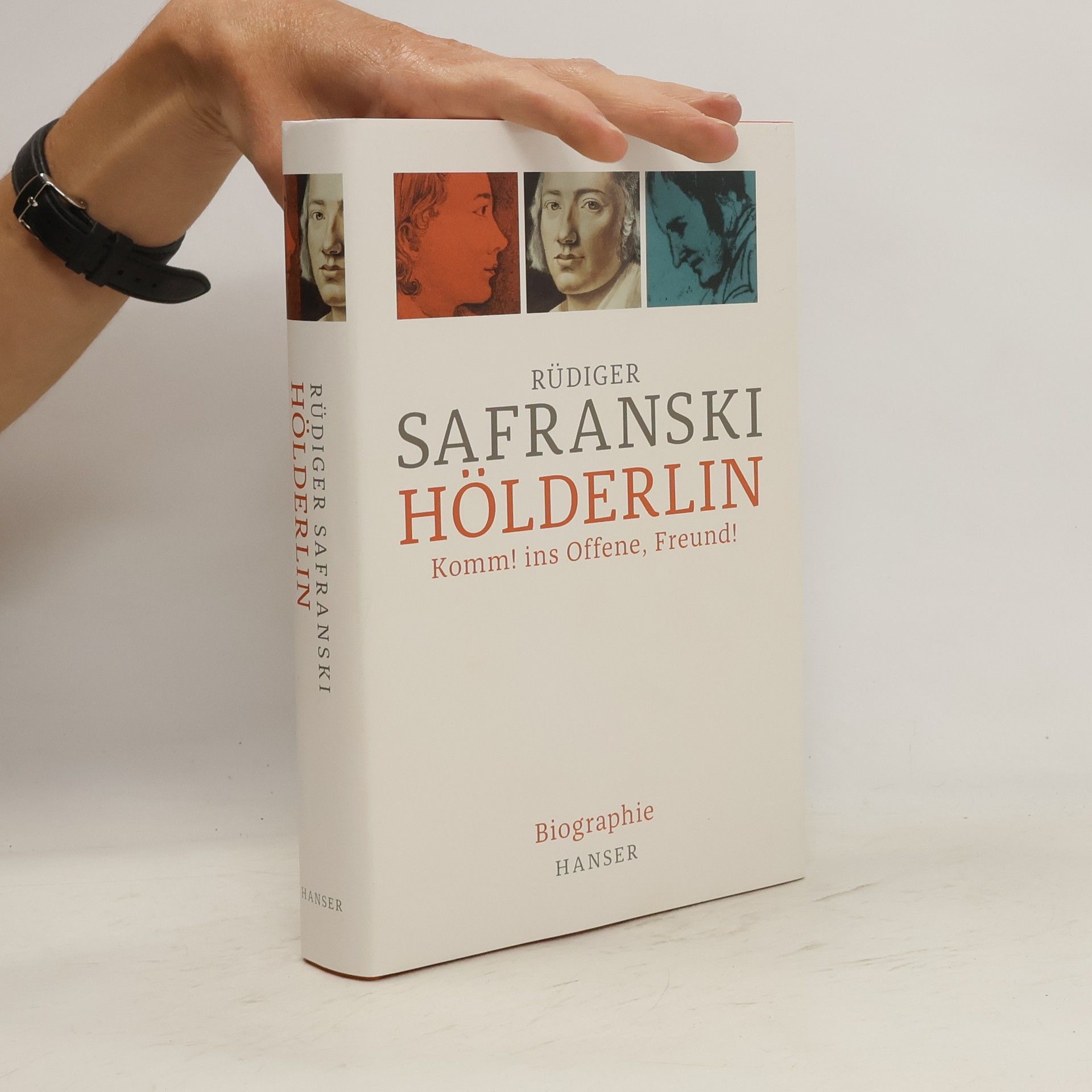Gdy Holderlin spoglądał wstecz na swoje życie, wydawało mu się, że poezję tworzył zawsze. Słowo poetyckie było dlań niczym powietrze do oddychania. W poezji pozostawał w pełni sobą, a jednocześnie zachowywał więź z pewną całością w wyimaginowanej wspólnocie. Wielkiego przełomu, jaki nastąpił w stosunku do jego dzieła, już nie doczekał. Ten zaczął się dopiero około roku 1900. Odtąd Holderlin jest w pamięci kulturowej trwale obecny. Ale właśnie jako klasyk albo postać niemal mityczna. W każdym razie bardzo odległa. Spróbujmy, ostrożnie, nieco się do niego zbliżyć.
Rüdiger Safranski Book order (chronological)
Rüdiger Safranski is a German literary scholar and author. He has been Professor of Philosophy and Humanities at the Free University of Berlin since 2012.





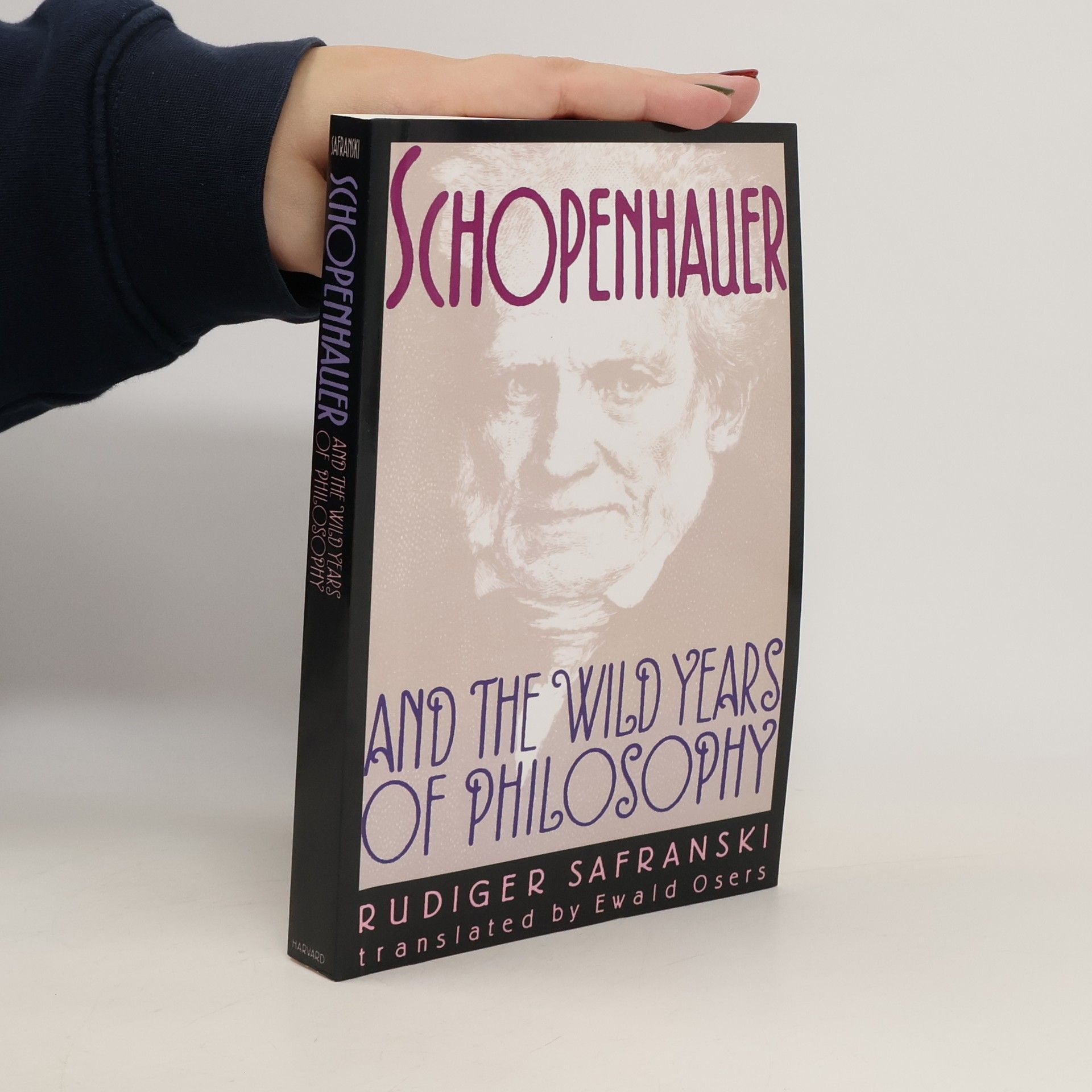
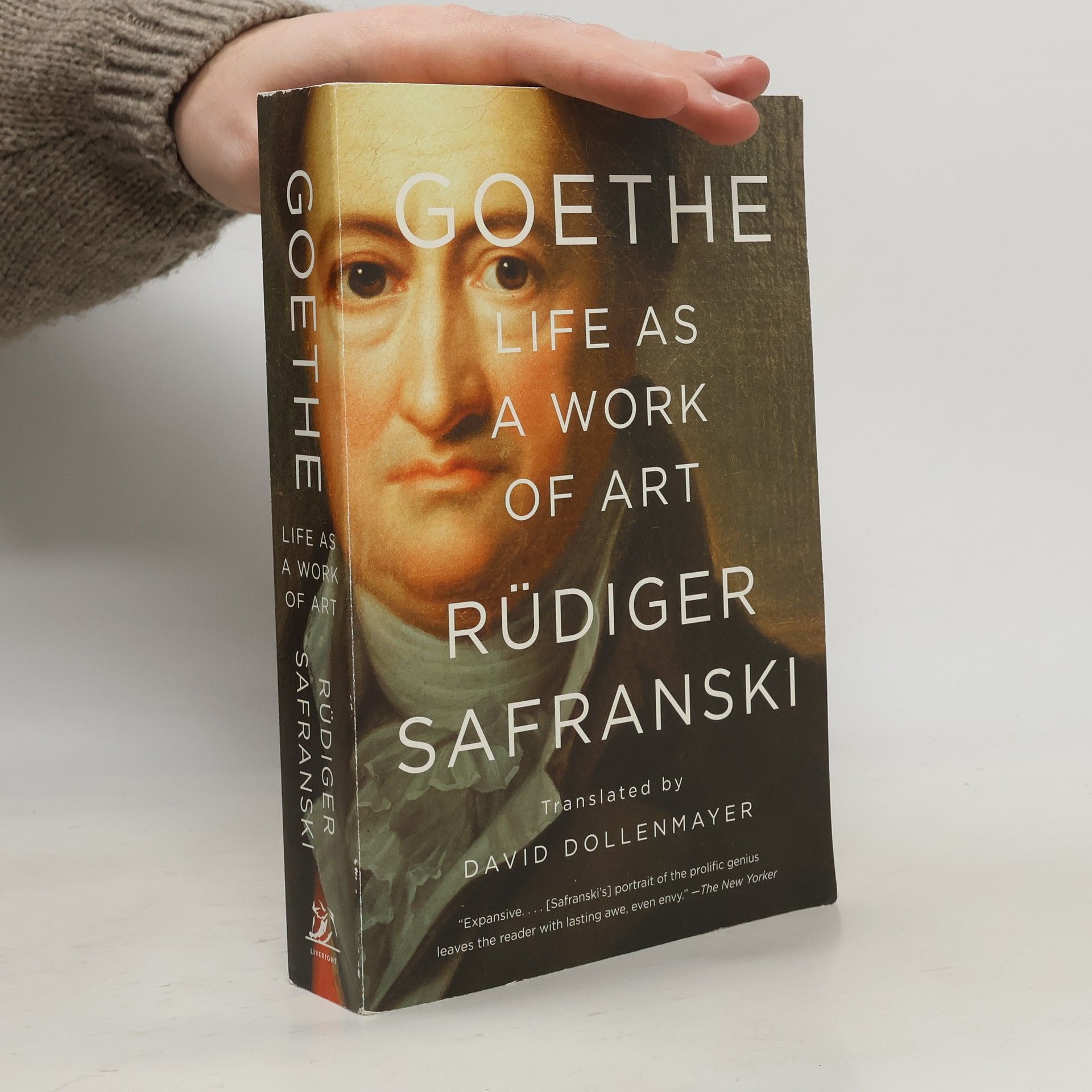
Kafka
Um sein Leben schreiben
Zum 100. Todestag: Rüdiger Safranski über Franz Kafka – Jahrhundertfigur der Weltliteratur „Ich habe kein litterarisches Interesse, sondern bestehe aus Litteratur, ich bin nichts anderes und kann nichts anderes sein", schrieb Franz Kafka an seine Verlobte Felice Bauer. Das Schreiben war seine Existenz, die ihm mehr bedeutete als ein vollendetes Werk. Rüdiger Safranski beobachtet Franz Kafka beim Schreiben, um den Geheimnissen seiner Texte näher zu kommen. In dessen Briefen liest er von den Augenblicken des Glücks, die Kafka am Schreibtisch erlebt, und von Momenten, in denen ihm die Welt vollkommen fremd erscheint. Versteht man Kafkas Bücher als Zeugnisse solcher Grenzerfahrungen, entfalten ihre Geheimnisse eine ganz unmittelbare Kraft. Eine solche Lektüre führt ins Zentrum eines Werks, das zu den Höhepunkten der Weltliteratur zählt.
Goethe oddziałuje inspirująco nie tylko swoim dziełem, lecz także swoją biografią. Był nie tylko wielkim pisarzem, lecz także wielkim mistrzem sztuki życia. Jedno i drugie czyni go dla potomności źródłem niewyczerpanym. Przeczuwał to sam, nawet jeśli w jednym ze swoich ostatnich listów do Zeltera pisał, że jest w pełni zrośnięty z epoką, która nigdy już nie powróci. Mimo to Goethe może się wydawać kimś żywotniejszym i bardziej współczesnym niż wielu żyjących, z którymi zwykle mamy do czynienia. Przeglądając się w zwierciadle Goethego, każde pokolenie ma szansę zrozumieć lepiej również samo siebie i swój własny czas. Książka ta podejmuje właśnie taką próbę, opisując życie i dzieło człowieka, który był geniuszem swojego wieku, a zarazem pragnąc na jego przykładzie zbadać możliwości i granice uprawiania sztuki życia.
Zum 200. Todestag von E. T. A. Hoffmann: Bestsellerautor Rüdiger Safranskis bis heute konkurrenzlose Biografie, erweitert um ein Nachwort Eigentlich wollte E. T. A. Hoffmann Musiker werden, und als Komponist und Kapellmeister hat er es zu einigen Erfolgen gebracht. Zur Sicherheit studierte er Jura, aber dann begann er aus einer Laune heraus Erzählungen und Romane zu schreiben, die bis heute lebendig geblieben sind: „Lebens-Ansichten des Katers Murr“, „Die Elixiere des Teufels“, „Die Serapionsbrüder“. Rüdiger Safranski hat ihm 1984 seine erste Biographie gewidmet, nun erscheint sie neu zum 200. Todestag, erweitert um ein Nachwort. Man findet in ihr alles Wissenswerte über Leben und Werk, aber sie weckt vor allem die Lust, in die wilden Geschichten des E. T. A. Hoffmann einzutauchen.
Goethe : umělecké dílo života : biografie
- 600 pages
- 21 hours of reading
Wie kommen wir damit zurecht, auf uns allein gestellt zu sein? Rüdiger Safranski über den Gegensatz zwischen Individuum und Gesellschaft. Eine ganz besondere Geschichte der Philosophie Jeder Mensch ist zunächst einmal ein Einzelner. Das kann zur Belastung werden, vor der ein Leben in Gemeinschaft schützt, das kann aber auch den Ehrgeiz wecken, die eigene Individualität zu kultivieren. Zwischen beiden Polen unserer Existenz hat es immer wieder eindrucksvolle Versuche gegeben, einzeln zu sein. Davon erzählt Rüdiger Safranski in seinem neuen Buch. Er beginnt bei Michel de Montaigne und führt über Rousseau, Diderot, Kierkegaard, Stirner und Thoreau bis zur existentialistischen Philosophie des 20. Jahrhunderts. Dabei nähert er sich aus immer anderen Richtungen der Frage, wie weit wir es ertragen, Einzelne zu sein – eine Frage, die sich ganz überraschend in unser alltägliches Leben gedrängt hat.
Rüdiger Safranski představuje Goetha v novém světle, čímž nabízí živý obraz tohoto génia století. Biografické prameny k Goethovi jsou bohaté a provázené mnoha názory a interpretacemi. Safranski se zaměřuje na primární zdroje – díla, dopisy, deníky a poznámky současníků – a vytváří tak fascinující portrét muže, jehož životní cesta zahrnuje období od hravého rokoka po střízlivý věk železnic. Goethovo rané literární dílo zůstává dodnes měřítkem, avšak po úspěšném období v Frankfurtu se mu literární život začal zajídat. V roce 1775 se rozhodl pro radikální změnu a odešel do malého vévodství Sasko-výmarského, kde se stal státním ministrem. I nadále tvořil nezapomenutelné básně, divadelní hry a romány, včetně Faustova díla, a uvědomoval si, že jeho život může být také významným dílem, které chce vtisknout nezaměnitelnou podobu. Safranski líčí nejen Goethovu tvorbu a jeho dobu, ale také jeho osobní vývoj. Kniha se stává příkladem umění žít, které je stále relevantní a poučné. Český čtenář tak po více než 46 letech získává ucelenou moderní biografii Goetha, která byla v Německu přijata s nadšením.
Zum 250. Geburtstag Friedrich Hölderlins: Rüdiger Safranskis Biographie über den großen unbekannten Dichter Dies ist die Geschichte eines Einzelgängers, der keinen Halt im Leben fand, obwohl er hingebungsvoll liebte und geliebt wurde: Friedrich Hölderlin. Als Dichter, Übersetzer, Philosoph, Hauslehrer und Revolutionär lebte er in zerreißenden Spannungen, unter denen er schließlich zusammenbrach. Erst das 20. Jahrhundert entdeckte seine tatsächliche Bedeutung, manche verklärten ihn sogar zu einem Mythos. Doch immer noch ist Friedrich Hölderlin der große Unbekannte unter den Klassikern der deutschen Literatur. Der 250. Geburtstag im März 2020 ist eine gute Gelegenheit, sich ihm und seinem Geheimnis zu nähern. Rüdiger Safranskis Biografie gelingt das auf bewundernswerte Weise.
Klassiker!
Ein Gespräch über die Literatur und das Leben
Welche Rolle spielen die Klassiker heute? Rüdiger Safranski im Gespräch mit Michael Krüger und Martin Meyer Goethe und Schiller, Hölderlin und Nietzsche: Wie steht es um die Klassiker? Wie bewähren sie sich in einer Zeit, die einstige Gewissheiten unserer Kultur radikal in Frage stellt? Welche Rolle spielen sie noch auf dem Theater, für die private Lektüre? Fragen, die man am besten Rüdiger Safranski stellt. Seit seiner E. T. A.-Hoffmann-Biographie von 1984 ist es auch sein Verdienst, dass sich eine große Öffentlichkeit mit Leben und Werk literarischer und philosophischer Klassiker auseinandersetzt. Nun hat er sich mit seinem langjährigen Verleger Michael Krüger und dem Publizisten Martin Meyer zu einem Gespräch getroffen, das auch um die Frage kreist, welche Rolle die Klassiker in unserem Leben spielen.
Hölderlin: Komm! ins Offene, Freund! Biographie
- 335 pages
- 12 hours of reading
Zum 250. Geburtstag Friedrich Hölderlins: Rüdiger Safranskis Biographie über den großen unbekannten Dichter Dies ist die Geschichte eines Einzelgängers, der keinen Halt im Leben fand, obwohl er hingebungsvoll liebte und geliebt wurde: Friedrich Hölderlin. Als Dichter, Übersetzer, Philosoph, Hauslehrer und Revolutionär lebte er in zerreißenden Spannungen, unter denen er schließlich zusammenbrach. Erst das 20. Jahrhundert entdeckte seine tatsächliche Bedeutung, manche verklärten ihn sogar zu einem Mythos. Doch immer noch ist Friedrich Hölderlin der große Unbekannte unter den Klassikern der deutschen Literatur. Der 250. Geburtstag im März 2020 ist eine gute Gelegenheit, sich ihm und seinem Geheimnis zu nähern. Rüdiger Safranskis Biografie gelingt das auf bewundernswerte Weise.


